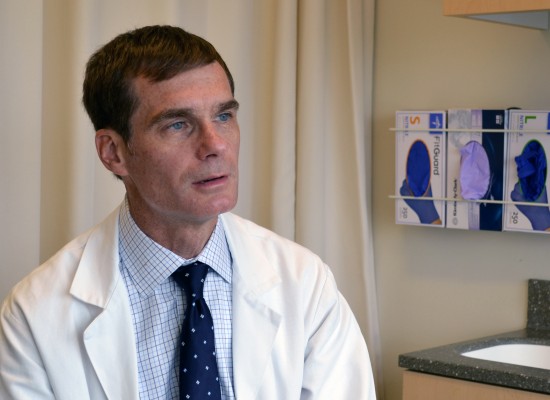Dr. Jason Karlawish, co-director the Penn Memory Center and founder of the concept of “whealthcare” for older adults, will join an international council protecting senior investors.
The Advisory Council to the Seniors and Diminished Capacity Committee of the North American Securities Administrators Association (NASSA) invited Karlawish to join in July. One of the top priorities of the committee — comprised of experts in the fields of government, business, senior advocacy, law, medicine, and academia — is to protect senior investors.
“It is our goal to fully consider and develop tools for use by regulators, industry, and investors to better protect senior investors and individuals suffering from diminished capacity,” NASAA President Judith Shaw and Committee Chair Lynne Egan wrote in a statement. “[Karlawish’s] participation in the Advisory Council is a significant step towards that goal.”
Karlawish is a professor of medicine, medical ethics and health policy, and neurology at the University of Pennsylvania Perelman School of Medicine. In May, he co-hosted a symposium focused on maintaining economic security in later life. At that event, he implored the medical and financial management communities to collaborate with legislators to merge the care of seniors’ health and wealth into what he calls whealthcare.
“Whealthcare isn’t simply alliterative word play,” Karlawish wrote in his Forbes column after the event. “It reveals itself when several empirical observations are woven together beginning with the changes that either aging or diseases, or both, that cause changes in older adults’ financial capacity, a term that describes our abilities to manage our money and other assets to meet our needs and in a manner that is consistent with our values and interests.”
Implementation of whealthcare will require the social-ecological model of public health used by the U.S. Centers for Disease Control and Prevention for crises such as heart disease, Karlawish argued.
While doctors prescribe drugs to prevent heart attacks and strokes, patients take steps at home to improve their cardiovascular health, and communities are working together to create a healthier environment for all.
“We could do the same for the risks of suffering cognitive decline and fraud and abuse, the strokes and heart attacks of the aging or diseased brain,” Karlawish said.
The council will meet with representatives of the NASAA committee later this year.
